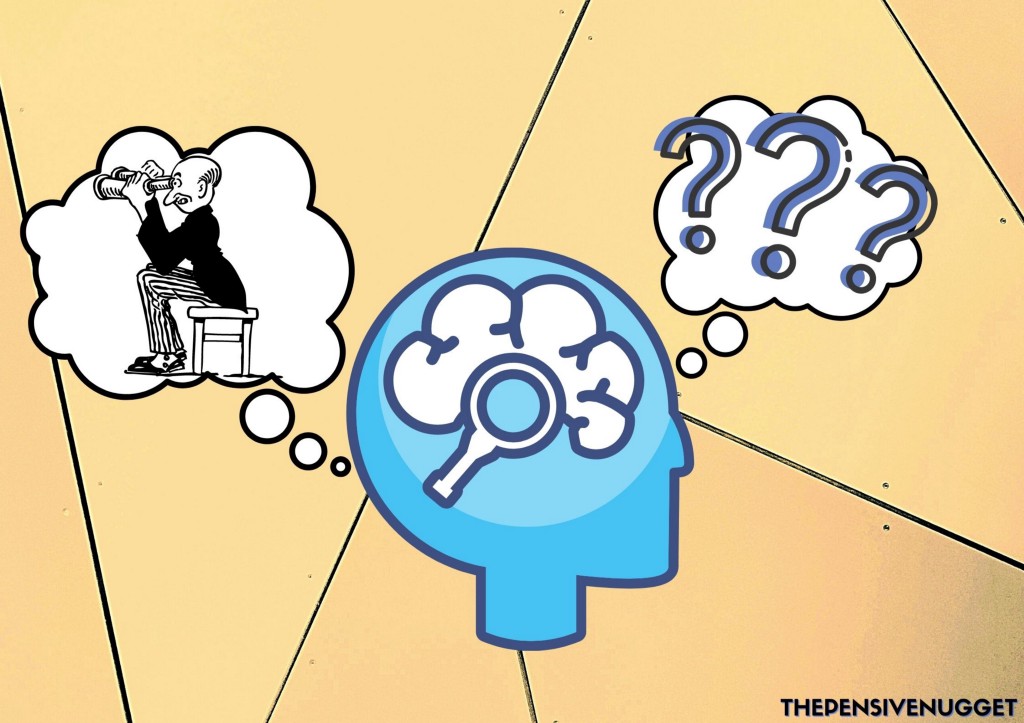Originally posted on thepensivenugget.com
Hindsight is 20/20.
You’ve probably heard this phrase at some point or other in your life, and it refers to the clarity that comes with retrospection, which isn’t available to you at the point of making a decision.
8. Hindsight bias
This is very common in trading and investing, where laments along the lines of “I should have bought this stock when the price was lower”, or “I should have taken profits last week before markets tanked” can often be heard.
It is especially common among less experienced market participants, who tend to be more emotionally affected by outcomes of their trading decisions than grizzled veterans.
In a way, the hindsight bias is related to the outcome bias, in that it focuses purely on the outcome of a decision to the exclusion of everything else.
“Everything else” here refers to the quality of the decision making process, the rigor of execution, and of course the effects (or ill effects) of factors outside of anyone’s control.
Put another way, the hindsight bias fails to take into account that states of information are very different before and after an outcome.
In fancier terms, there often is a big difference in what we know ex ante (before the event), versus what we know ex post (after the fact). Since we almost never have perfect information ex ante, we cannot possibly judge ourselves, and outcomes, based on what we know ex post.
Yet that’s exactly what the hindsight bias does
In a trading environment, where emotions have a tendency to be fraught as money is on the line, it is easier for the hindsight bias to cloud our judgment.
No one can forecast the future with consistent accuracy, and unless a trader has developed a method to do so, she will not know with certainty to buy a stock now because it will rally next week.
In the same vein, she will not know with certainty to sell a stock now because the market will tank next week.
Thankfully, since the bias only kicks in after the fact, it doesn’t really impact our thinking and decision making process before a trade is made.
In this sense, it is less impactful than, say, the disposition effect.
But, in clouding our judgment after the fact, the hindsight bias still affects an important part of our development as traders and investors as it misdirects our cognitive focus away from what truly matters — the process.
As the hindsight bias focuses on ex post certainty, it ignores the fact that prior to the outcome being known, we all have to make decisions in an environment that is filled with uncertainty.
Consequently, traders who fail to step out of their hindsight bias never really learn the importance of developing the tools and methods to help them manage uncertainty, more often than not leading to disastrous outcomes.
In short, focus on your process!
Do you want to make money trading a crisis? Check out our course on how to do so. And don’t forget to sign up for our FREE course on how to create a trading plan!
A Message from InsiderFinance
Thanks for being a part of our community! Before you go:
- 👏 Clap for the story and follow the author 👉
- 📰 View more content in the InsiderFinance Wire
- 📚 Take our FREE Masterclass
- 📈 Discover Powerful Trading Tools
Is Hindsight Stopping You From Becoming A Successful Trader? was originally published in InsiderFinance Wire on Medium, where people are continuing the conversation by highlighting and responding to this story.


Comments